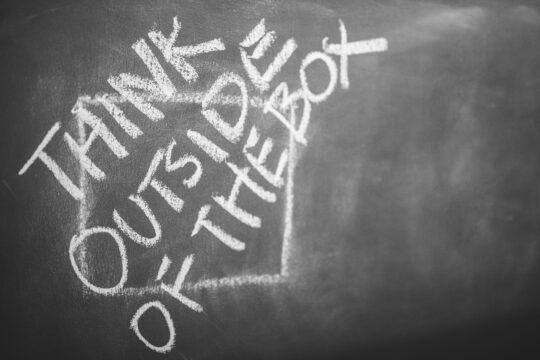Soft skills are essential for collaboration
Behavioral skills, a crucial subset of soft skills, play a decisive role in building high-performance teams. They include the ability to manage emotions, work in a team and communicate effectively.
Effective communication
While we all know how to communicate, doing so effectively is a skill in itself, which can be learned and developed.
It is this point of effectiveness that makes communication an essential soft skill for teamwork, and for professional development in general. Effective communication can be defined as a process of exchange in which the message conveyed is clearly received and understood, with a specific goal in mind.
Effective communication isn’t just about being able to present your ideas, thoughts or opinions clearly and communicate them persuasively. An effective communicator must also know how to listen, ask questions and be curious about the other person. Language also involves the body, gestures and tone of voice, all of which need to be worked on. Effective communication is intrinsically linked to interpersonal skills, as it involves not only conveying information, but also establishing and maintaining positive relationships with other team members.
Team spirit and cooperation
The ability to collaborate effectively with others and work as part of a team is the next natural step after developing communication skills. As we have seen, the effective communicator must also have developed listening skills, and it is these qualities that will enable relevant teamwork.
Team spirit isn’t just about working with colleagues or taking part in group projects. This implies a deep understanding of group dynamics, effective communication skills and the ability to collaborate and deal with diverse personalities. Team spirit is the cornerstone of teamwork, a fundamental aspect of soft skills that facilitates collaboration and the sharing of ideas within organizations.
Adaptability and flexibility
Adaptability is a crucial soft skill for a team’s effectiveness, as it enables them to navigate successfully in a constantly changing environment. Individuals capable of adjusting quickly to change, solving problems flexibly and embracing new ideas foster collaborative dynamics.
Adaptability enables positive reactivity in the face of challenges, reinforcing team resilience. Adaptability and flexibility are the keys to maintaining performance under changing conditions, but also to continuing to stimulate innovation and ensure cohesion that transcends obstacles.
Problem solving
Problem solving is a soft skill that enables a team to overcome obstacles efficiently. Individuals with this skill demonstrate an ability to analyze, conceptualize and develop innovative solutions.
A team adept at problem-solving is better equipped to anticipate and respond to complex challenges, thus promoting greater productivity and performance.
Solution-oriented, this soft skill also cultivates a proactive mentality, encouraging collaboration and reinforcing trust within the team.
Leadership and Soft Skills

A good manager must possess certain soft skills specific to his or her role, and know how to deal with the singularities of his or her team members, including their soft skills. To boost performance, it’s essential to train managers, particularly in the soft skills we’ll be detailing below.
Team management
A manager doesn’t need to possess all the skills of the people he or she manages to create a high-performance team. For example, CFOs sometimes manage IT teams, but CFOs don’t have specific IT development skills.
However, in this case, the manager can still build a high-performance team as long as he understands how to develop his team, encourage them, listen to them and identify ways of developing their skills.
This soft skill of team management involves leadership development, which is partly innate, but can also be developed.
Decision-making
Decision-making, and confidence in decision-making, are key skills for managers and good leaders. Managers need to be assertive when making decisions that will have an impact on the next stages of a project, and give their team the way forward.
Sometimes you have to make informed decisions without all the cards in your hand, or on the basis of incomplete information. This skill is developed by learning to formulate problems rather than trying to solve them at all costs. This method, based on scientific experimentation, enables us to identify possible solutions and weigh up the advantages and disadvantages of each, so that we can then make a more confident decision.
Of course, intuition can play a part in decision-making, and the manager needs to be able to rely on it without putting it first.
Motivation and inspiration
The ability to motivate and inspire is what fuels a team’s enthusiasm and commitment. Individuals with this skill have the power to instill positive energy, boosting productivity and boosting team morale. By cultivating a motivating environment, these members foster collaboration and encourage their peers to go beyond their limits.
The ability to motivate and inspire enables us to transcend challenges and nurture collective perseverance.
It’s a soft skill that team leaders absolutely must possess, catalyzing intrinsic motivation and propelling the group energetically towards the achievement of its objectives.
Conflict management
The ability to manage and resolve conflict is crucial to maintaining a positive working environment, enabling the team to overcome disagreements and progress towards common goals. Conflict management is therefore an essential skill for a high-performance team, because of its impact on collaboration and cohesion. Individuals proficient in this soft skill demonstrate an ability to identify, understand and resolve tensions constructively.
A team that benefits from effective conflict management evolves in a healthy working climate, preventing misunderstandings and preserving interpersonal relationships.
With a seasoned pilot at the controls, this skill also encourages open dialogue, reinforcing trust within the group.
Soft skills for innovation

Critical thinking and creativity
Critical thinking and creativity cultivate a certain capacity for innovative problem-solving. Competent individuals in these fields demonstrate an ability to rigorously analyze situations, challenge established norms and generate original ideas.
From the team’s point of view, critical thinking fosters informed decision-making, while creativity fuels innovation. Together, these skills strengthen the team’s ability to adapt to change and find ingenious solutions.
Without doubt, in today’s fast-moving world, these skills are more necessary than ever for team performance.
Curiosity and open-mindedness
Open-mindedness and curiosity foster continuous learning and innovation. Individuals with these skills demonstrate a willingness to explore new ideas, understand varied perspectives and embrace diversity. Within a team, open-mindedness encourages an inclusive environment where everyone feels valued, thus fostering fruitful collaboration. Curiosity fuels the search for innovative solutions, stimulating collective creativity.
Together, these skills boost the team’s ability to adapt, learn new methods, and stay at the cutting edge of their field.
Ability to learn
Learning can be learned! The ability to quickly assimilate new information, master new skills and adjust to the constant changes in today’s world is now a highly sought-after skill.
Within a team, this ability fosters a culture of continuous learning, where members constantly share and assimilate knowledge. The ability to learn enables the team to remain relevant, fostering innovation and strengthening collective resilience.
This useful soft skill is the key to a dynamic team, constantly ready to take on new challenges with a proactive attitude.
Calculated risk-taking
Calculated risk-taking is the ability to judiciously assess opportunities and embrace bold initiatives. Within a team, risk-taking creates an environment conducive to experimentation and creativity, paving the way for innovative solutions.
To remember: This soft skill reinforces the team’s ability to evolve in changing contexts.
Emotional intelligence at the service of the team
Emotional intelligence, which includes the ability to understand and manage one’s own emotions and those of others, is a manifestation of the human qualities essential in a professional environment, particularly in situations of stress and conflict.

Emotional intelligence
Emotional intelligence refers to a person’s ability to recognize, understand and effectively manage their own emotions, as well as those of others. It also encompasses the ability to use this emotional knowledge to guide thoughts and actions, thus fostering positive interpersonal relationships and informed decision-making.
In the world of work, emotional intelligence has become a crucial soft skill, sought after by 75% of recruiters. The complexity of professional interactions, teamwork and the pressures of a constantly changing environment underline the importance of this skill. Individuals with developed emotional intelligence are better equipped to manage stress, resolve conflicts constructively, and communicate empathically.
For managers, emotional intelligence is essential to inspire and motivate teams, build trusting relationships, and successfully navigate through organizational challenges.
Empathy and understanding
Empathy and understanding are skills that strengthen interpersonal relationships and foster a collaborative environment. Empathetic individuals demonstrate sensitivity to the emotions and perspectives of others, facilitating communication and conflict resolution.
Within the team, empathy and understanding help cultivate a climate of trust, encouraging cooperation and solidarity. These soft skills are essential for managing diversity within the group, fostering a sense of inclusion.
Managing emotions
Managing emotions within a team has a direct impact on collective well-being and productivity. Individuals who know how to manage their emotions demonstrate an ability to recognize, understand and channel them constructively.
For the team, it’s essential that members can express their feelings in a healthy way, facilitating communication and problem-solving. This soft skill helps maintain a positive work climate and a collaborative atmosphere.
Interpersonal relations
Interpersonal relations have a direct impact on the quality of collaboration and team cohesion. It’s about knowing how to establish and maintain positive relationships with your peers. Within the team, good interpersonal relations foster a climate of trust, facilitating communication and problem-solving. This soft skill is essential for a harmonious working environment, where members feel valued and supported. Strong interpersonal relationships also contribute to collective motivation, helping to achieve common goals.
Constructive collaboration or
growth mindset
This soft skill is really a state of mind, a way of thinking, geared towards growth. It’s important because, if this state of mind is instilled within the team, then the work dynamic is boosted. It enables individuals to experiment, encourage innovation, share feedback more easily, and strengthen everyone’s ability to contribute to the success of the collective. Managers are on the front line in spreading this spirit of growth and collaboration to guarantee their team’s performance.
Conclusion
As you can see, building a high-performance team no longer depends solely on the technical skills and past experience of its members.. From now on, teams must include people with softskills and varied, complementary profiles. Some recruiters have even made this a priority, looking not for skills but for personalities that complement those of the team in which the candidate will be working.
Investing in soft skills often results in a significant improvement in working conditions and overall company performance. In fact, employees appreciate the fact that the company seeks to develop them and capitalizes on their inter-personal skills. This fosters a collaborative, respectful climate, with employees who feel listened to and valued, and therefore more involved in their missions.


